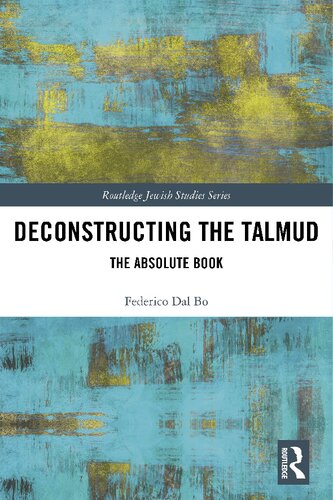

Most ebook files are in PDF format, so you can easily read them using various software such as Foxit Reader or directly on the Google Chrome browser.
Some ebook files are released by publishers in other formats such as .awz, .mobi, .epub, .fb2, etc. You may need to install specific software to read these formats on mobile/PC, such as Calibre.
Please read the tutorial at this link: https://ebookbell.com/faq
We offer FREE conversion to the popular formats you request; however, this may take some time. Therefore, right after payment, please email us, and we will try to provide the service as quickly as possible.
For some exceptional file formats or broken links (if any), please refrain from opening any disputes. Instead, email us first, and we will try to assist within a maximum of 6 hours.
EbookBell Team

5.0
108 reviewsThis monograph uses deconstruction―a philosophical movement originated by Jacques Derrida―to read the most authoritative book in Judaism: the Talmud. Examining deconstruction in comparison with Kant’s and Hegel’s philosophies, the volume argues that the movement opens an innovative debate on Jewish Law.
First, the monograph interprets deconstruction within the major streams of continental philosophy; then, it criticizes many aspects of Foucault’s and Agamben’s philosophy, rejecting their notion of law. On these premises, the research delivers a close examination of many fundamental aspects of the Talmud. Consequently, it provides a short history of Rabbinic literature, a history of the dissemination of the Talmud from Babylon to Northern France, and an analysis of Talmudic vocabulary from a deconstructive perspective. Each key concept of the Talmud is analysed according to the deconstructive dialectics between orality and writing. Closing with a comparison between the Talmud and Derrida’s most enigmatic text, Glas, the study argues that deconstruction dismantles the traditional notion of the Talmud to outline a new approach to Jewish Law.
Reading the Talmud through deconstruction, this new angle makes the volume an essential resource for students and scholars interested in Jewish studies, continental philosophy, and the Middle East.